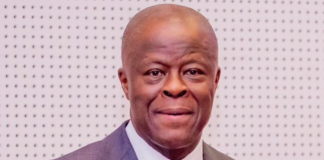Convening at CNN’s state-of-the-art hub in Abu Dhabi last week,110 aspiring and emerging journalists from around the world engaged in a dynamic and immersive journalism simulation focused on climate reporting.
This unique event is part of CNN Academy, a special initiative designed to empower and upskill the next generation of journalists.
This second edition of the CNN Academy simulation aimed to test and refine the skills of the participants by replicating a climate disaster scenario. Set in a fictional country, this multi-faceted exercise engaged trainees in a realistic news environment with the story unfolding in real time over a week.
Becky Anderson, Anchor & Managing Editor, CNN Abu Dhabi, said: “At the end of what will be the hottest year ever recorded, and with COP28 taking place in Dubai, we wanted to focus this latest group of CNN academicians on what is without doubt the most important story of this generation. Reporting on the climate crisis is vitally important, but far from easy. We were able to immerse this group deep into all its complexity during this exercise. To see these young journalists, from all corners of the globe, working hard to tell this story with truth, accuracy, clarity and context has been truly inspiring.”
Fourteen participants marked the inaugural cohort of the new CNN Academy Global South Climate Storytelling program, funded by The Rockefeller Foundation. They were specifically chosen to take part from the region most impacted by climate change and attended from countries including Colombia, Indonesia, Kenya and Vietnam. The program aims to increase awareness and address the impact of climate change in the most vulnerable communities in the Global South. The cohort joined participants from CNN Academy initiatives worldwide, including Hong Kong Chui Hai College, University College Dublin, Universidad Loyola Sevilla, University of Nottingham Malaysia, and CNN Academy Abu Dhabi, creating an international group representing 30 different nationalities.
Eileen O’Connor, the Senior Vice President for Strategic Communications and Policy at The Rockefeller Foundation said: “Empowering storytellers from the Global South with climate reporting skills is paramount because developing countries are already suffering from climate change, despite bearing minimal responsibility for it. It’s not just about sharing stories; it’s about giving voice to the most affected communities and amplifying urgent calls for climate action.”
The simulation was designed and planned by CNN, in collaboration with Prof. Rex Brynen of McGill University, a leader in serious gaming and Jim Wallman of Stone Paper Scissors. Building on the success of CNN Academy’s first newsroom simulation which launched last year, this year’s iteration saw participants newsgathering in the field, using a custom-built social media tool and attending mock press conferences and interviews. Each team was tasked with writing, producing, reporting, filming and editing a news package by the end of the week, leveraging the extensive media technology facilities of the creative lab, hosted at twofour54’s Yas Creative Hub in Abu Dhabi.
Esha Mitra, from India, who is part of The Rockefeller Foundation cohort said: “What I’ll take away from the simulation is the skill it takes to find and effectively tell a story that resonates in a world where there’s always something new and chaotic happening at every turn. I definitely would recommend this course and the simulation for aspiring journalists!”
Alongside the newsroom simulation, participants also received masterclasses from CNN experts on the power of pictures and storytelling during times of conflict, along with workshops on the importance of data management and archiving, and the complexity of gender reporting.
Phil Nelson, EVP, CNN International Commercial said: “CNN Academy builds on a long tradition established by our founder, Ted Turner, to train and nurture the next generation of journalists, developing skills, forging links and opening doors. The CNN Academy simulation expands on this by presenting the participants with challenges modern journalists encounter, in an environment where they are safe to fail, and encouraged to consider every element they might face working on a story. This exceptional training is unmatched in the industry.”
A visit to COP28 in Dubai allowed the academicians to explore pavilions and attend talks at the UN Climate Change Conference. In recognition of supporting the local ecology and climate, a tree was planted on behalf of each participant at the Jubail Mangrove Park in Abu Dhabi, which preserves the UAE’s mangrove habitats while also raising awareness of their importance to the environment.











